
How to become a Rosey student
For candidates for classes 9 to 4
(UK Years 4 to 9 / US Grades 3 to 8)
Rolling Admissions system:
Once online application forms and required documents have been received (details below), candidates are invited to spend a day on the campus as soon as possible after the start of September to get to know the school and to take entrance tests (in Mathematics, English or French and their mother tongue). They are interviewed by academic heads and they have the chance to ask questions.
The Admissions Committee meets every week to discuss completed dossiers and corrected entrance tests. One of four decisions is possible:
- Acceptance
- Deferral: In cases where the competition is fierce (because of linguistic quotas for example) or where the latest transcripts or reports have not been received, the Committee reviews all completed dossiers together at a later date before making a final decision. In such cases, parents are informed of the time that they may need to wait and of the date when the dossier will be re-examined.
- Waiting List: when all places for next year have been awarded, candidates with the level to be admitted are placed on a Waiting List and may be admitted as and when places become available, often in spring but sometimes as late as during the summer.
- Denial
Children develop in the course of a year and a candidate who has been refused a place can always re-apply for the following year.
To increase their chances of admission, candidates are urged to apply as early as possible after the beginning of September.
For candidates for classes 3, 2, and 1
(UK Years 10, 11, and 12 / US Grades 9, 10, and 11)
Admissions is by “rounds”; the application procedure is the same as for other students (required documents, visit, admission tests, interview). The application is reviewed once completed and can either be denied or selected for a “round” session:
- 1st session for dossiers completed by November 15: the Committee announces one of three decisions at the beginning of December. These are: accepted, denied or deferred to the 2nd session
- 2nd session for dossiers completed by January 31: the Committee announces one of three decisions early March. These are: accepted, denied or wait listed.
Under exceptional circumstances, the Admissions Committee may announce an earlier decision.
Dossiers completed after 31 January are still considered by the Admissions Committee which will decide either to place candidates on the Waiting List or to refuse admission.

It is worth remembering that Le Régent International School, Le Rosey’s “sister school”, may be able to offer a place to those candidates who are unsuccessful at Le Rosey because of lack of space or nationality or language quotas. (See “Frequently Asked Questions” below for further details.)
Application procedure
- Complete the admissions application online via the link below.
- Prepare a copy of your academic record and a Medical Report completed by your doctor.
What is the profile of a future Rosey student?
Intellectual ability
All candidates must be capable of keeping up with the requirements of the programmes needed to sit the French or International Baccalaureates.
Linguistic ability in English or French
To be admitted to the Juniors (aged 8-12), knowledge of Rosey’s working languages is not vital; from the Cadets (aged 12) upwards, it is important to understand one of the two languages; from 15 years on, students must master one of the two languages.
Character and values
At Le Rosey, it is very important that the values identified in the Codes are shared by the candidate and their family. Le Rosey favours active, curious and ambitious candidates.
Some candidates, however, may not be admitted to Le Rosey for the following reasons:
- While teachers, tutors and specialists help students overcome minor or temporary learning differences, Le Rosey is not suited to children with a severe learning disability.
- Violent, antisocial or racist attitudes. Life at Le Rosey is based on a commitment to discipline founded on respect for others and their differences.
- Spoiled children used to always getting their way. Life and discipline at Le Rosey are demanding and the change would be difficult!
- Any evidence of drug or alcohol use.
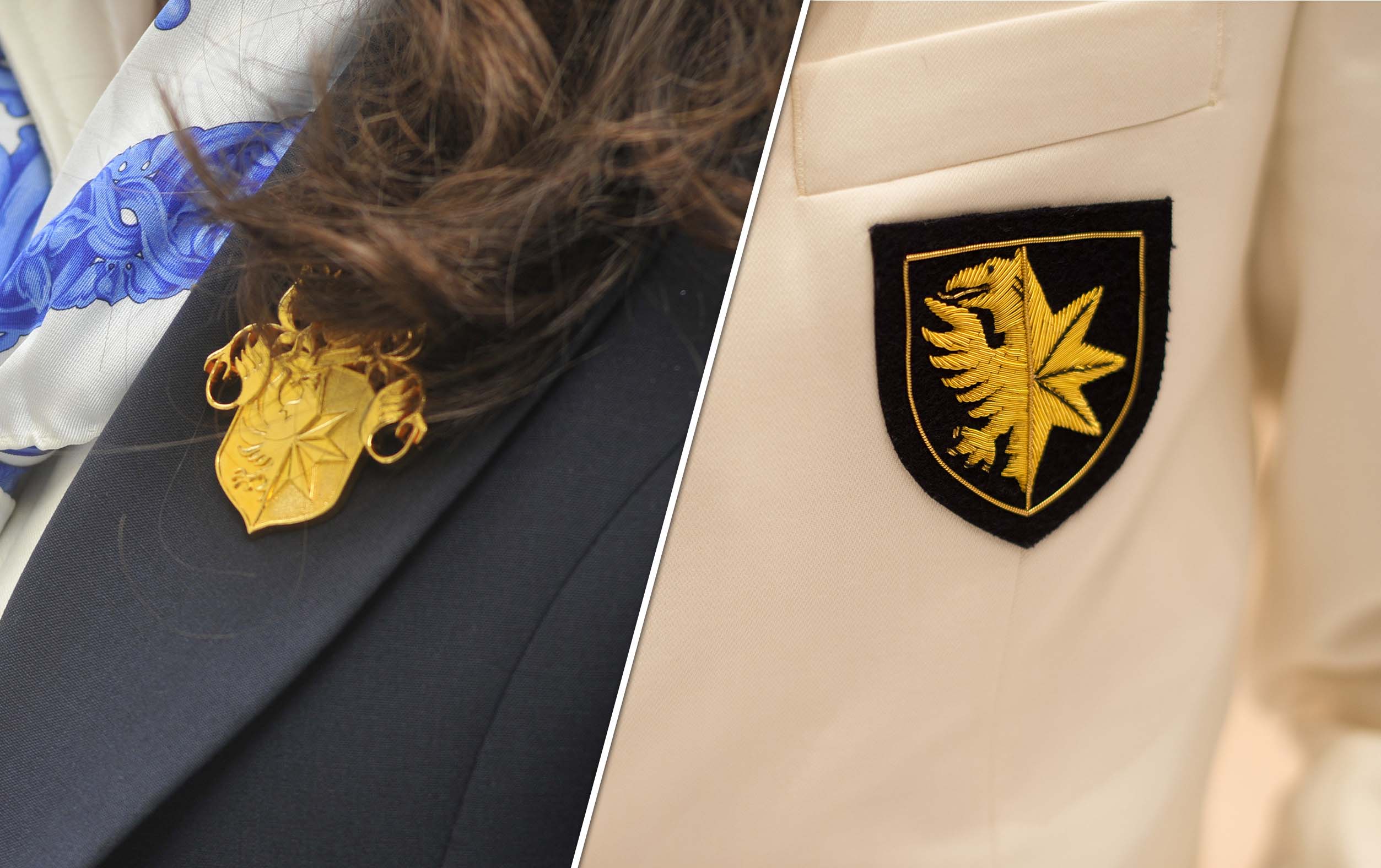
Frequently Asked Questions
IS IT POSSIBLE TO APPLY FOR ENTRY TO LE ROSEY FOR THE LAST TWO YEARS OF SECONDARY (US GRADES 11 AND 12; UK YEARS 12 AND 13) TO PREPARE FOR THE INTERNATIONAL BACCALAUREATE?
Yes, but we do not recommend it. Demand for one of the few places on our IB course is highly competitive and every year we find ourselves refusing excellent applicants.
Yet it is not only a matter of competition for places. We are also very hesitant about the value of spending only the last two hectic and academically demanding years at Le Rosey. And we are not the only ones to think like this: younger siblings of those accepted in Class 1 always apply to join us earlier.
WHICH YEAR GROUP OR GRADE IS IT BEST TO APPLY FOR?
It depends on the profile of the student. Some students are ready for boarding school at the age of 8; others prefer to wait. Parents, for their part, should be also ready! They will have to accord their children increased autonomy and allow them to leave home for a part of the year without trying to exercise permanent control over them.
Many students arrive at Le Rosey aged between 12 and 14 and remain with us until they graduate. Some begin earlier and the Junior Section is particularly well suited to 8- to 12-year-olds, providing a very supportive environment within the school as a whole.
It is worth noting that competition for places from class 3 onwards (US grade 9/UK year 10) is becoming increasingly intense.
HOW LONG IS IT BEST TO STAY AT LE ROSEY – UNTIL GRADUATION?
The vast majority of Roséens graduate from Rosey in their “senior” year and then leave for university, usually because they really don’t want to leave! Nevertheless, there are some students (usually younger ones) who stay for only two or three years before moving on, usually to an equally prestigious school in the UK or US. It is extremely rare for students over the age of 15 to leave Rosey before graduating.
IS THERE AN ADVANTAGE IN APPLYING A YEAR OR TWO BEFORE I WANT TO COME TO LE ROSEY?
Given that young people are always developing and changing, we don’t admit students before September for the following academic year. That being said, if we receive an outstanding application two years before entry date, we may offer a conditional place, based on the applicant maintaining the same level and satisfactory reports at their current school.
Some students apply very early indeed, and we obviously keep notes and records, and these can be useful in making decisions when the application becomes official.
What is the difference between Rolling Admissions and by Admission by Rounds?
In light of the competition for places for older students (classes 3, 2 and 1 – i.e. US 9th, 10th and 11th grade, UK years 10, 11 and 12), where applications are received continuously, decisions are taken at two sessions, one at the beginning of December (for applications completed by 15 November at the latest) and mid-February (for applications completed by 31 January). After the second session, although places in these classes are filled, those applying later may still be placed on the waiting list. Decisions (refusal or waiting list) will be taken on a rolling basis, usually within two weeks of the dossier being completed.
For younger children, applications can be made throughout the year (even if early application is strongly encouraged – see below). Decisions are taken as soon as possible and usually within two weeks of the dossier being completed.
WHEN IS THE BEST TIME OF THE YEAR TO APPLY?
After September, the sooner, the better. Each age level and each nationality has a quota and will reach their limits in the course of the year, meaning that even excellent applicants can only be placed on the Waiting List. Furthermore, admission to class 3 (9th grade, year 10), class 2 (10th grade, year 11) and class 1 (11th grade, year 12) is normally decided at two sessions, one in the autumn and the other in the winter (details above).
HOW LONG DOES IT TAKE TO GET A DECISION?
For students in classes 3, 2 and 1 (9th, 10th and 11th grade, years 10, 11 and 12) decisions are taken at special sessions in December or February (see above). After 31 January, a decision, either waiting list or refusal, will be taken on a rolling basis (details above).
WHAT DECISIONS ARE POSSIBLE AND WHAT IS THE WAITING LIST?
Four decisions are possible:
- Acceptance and an offer is made to the candidate; in a few cases this may be linked to academic results throughout the year at the candidate’s current school
- Refusal, which means that a candidate cannot come to Le Rosey in the following September; the application can, however, be carried over into the next academic year
- Waiting List, meaning that candidates have the qualities to be admitted but that there are currently no places left for technical reasons (the class is full, or the national quota has been reached, for example). If the situation changes (something which does not depend on the school and which can, unfortunately, be as late as during the summer), parents are informed and decide whether to accept the place.
- In a number of cases, the admissions decision may be deferred because of competition for the class applied for. This is usually for classes 1 and 2 or for certain linguistic quotas; this means that the commission considers all such dossiers together at a later date. In such cases, parents are informed of when a decision can be expected and the date when the dossier will be reviewed.
SURELY, THERE IS ALWAYS ROOM FOR ONE MORE AT LE ROSEY SO WON’T A FAMILY WITH “CONNECTIONS” OR READY TO MAKE A GENEROUS DONATION ALWAYS GET A PLACE?
This is never the case. The quality of the application and the degree to which we feel the candidate will flourish at Le Rosey is the basis of every decision. What is more, the family’s values and respect for fairness and transparency should correspond to our own. There is a limited number of beds at Le Rosey and even the most brilliant and well-qualified student with the “best” connections may not be admitted if there is no room.
Le Rosey never accepts donations. While most schools in the English-speaking world depend on their parents’ and alumni’s generosity, Le Rosey has no “Endowment Fund”: school fees are the sole source of finance for the school’s running and development, allowing us to remain entirely independent.
HOW IMPORTANT ARE NATIONALITY QUOTAS?
ARE SPORTS AND ARTS IMPORTANT?
WHAT IS THE SCHOOL CALENDAR ?
IS IT POSSIBLE TO START IN THE MIDDLE OF YEAR?
Rarely, but a place may open up in the course of the year following an early departure. This is usually at the start of the second or third term (the beginning of January and April).
IS IT IMPORTANT TO VISIT LE ROSEY DURING THE ADMISSION PROCESS?
Yes! The vast majority of applicants spend a day on campus. Not only does it allow us to interview applicants and their families properly, it also gives students the chance to spend time with Roséens and decide whether this is the school for them. After all, this is an important decision for all of us.
IS LE ROSEY A GOOD CHOICE FOR ALL STUDENTS?
Le Rosey provides a particularly active and united international community, so it is best suited to children, themselves active and curious, and who want to share their lives with others from different cultural backgrounds. They will respond well to academic demands and will aim to play a dynamic role in society – beginning with that of their school. Roséens need to possess a real desire to improve and develop their talents and they will be ready to take on the workload and sacrifice that may be required.
It is worth noting that the worst reason for wanting to come to Le Rosey is to show off parents’ wealth and prestige.
And, of course, it may be that a child is ready to become a Roséen but that parents are hesitant. This has to be a family decision.
These are things that our experienced admissions committee always takes into account, and for this reason it is extremely unusual for a student to be unhappy at Rosey for any length of time or to leave the school in the course of the year
HOW DOES THE LINK WITH LE RÉGENT INTERNATIONAL SCHOOL WORK?
Le Rosey’s sister school in Crans-Montana is growing quickly but its language and nationality quotas are under less pressure than Le Rosey’s: excellent candidates wait-listed, deferred or even refused at Le Rosey can extend their application to Le Régent where they may be offered a place. If there is room, this is automatic for those on Le Rosey’s Wait List (WL) – with the advantage that even if they decide to enrol at Le Régent, candidates can remain on Rosey’s WL and even transfer back to Le Rosey if a place opens up before the end of September. This all happens with no extra cost or form-filling. Although academic, sporting, social and alumni links with Le Rosey are developing fast, Le Régent has a strong and distinctive character of its own, and even if some students who enrol there may hope for a transfer to Le Rosey, nearly all become attached to this vibrant and forward-looking school.
Partial Scholarships
Registration for the 2025/2026 school year takes place from September 1 to December 31, 2024.
Each year, Le Rosey and the Rosey Foundation grant between three and five partial scholarships to deserving students who wish to play a leading role in contributing to society but whose parents cannot fully finance a place at Le Rosey. Scholarship students are selected from September to December each year. Please note that Le Rosey does not award any full scholarships.
What is the procedure?
Register online, mentioning your request for a partial scholarship. You will be asked to pay a CHF 500 application fee.
What are the conditions for awarding partial scholarships?
Successful applicants’ families will be required to make a significant contribution to tuition fees, as well as covering any non-obligatory expenses. The scholarship candidate’s family will be required to provide information regarding its financial status: the precise amount of financial aid will be based on this documentation. Scholarship applications must be made between September 1 and December 31. Applications received from January onwards will be carried over to the following September and considered an application for the following academic year. Scholarships are granted to applicants(s) with an exceptional profile; scholarship students are then treated in the same way as other Rosey students and their status is not revealed publicly. In order to remain at Le Rosey for one or more additional years, scholars must meet certain requirements which are regularly reviewed with them. Scholarship students may be admitted from class 6 to class 1.
Which students are awarded partial scholarships?
Academic excellence is naturally an important criterion, but it is not pivotal; character, talents and motivation are also taken into consideration. Without wishing to establish an identikit portrait of a candidate, we look for the following qualities:
- very good academic results which put the student in the top 5% of their age group
- good mastery of French and/or English and an ability to follow a demanding curriculum in one or both languages; a clear interest in learning several foreign languages
- the potential to make a significant contribution to sports, the arts or humanitarian activities at Le Rosey
- a desire to take on responsibilities and the maturity to handle these responsibilities
IB Scholarships at Le Régent
Le Rosey’s younger sister school, Le Régent International School in Crans-Montana, has a generous IB scholarship programme for a limited number of students. Le Régent, although a relative newcomer to the Swiss boarding school family, is set for a glowing future and has already achieved excellent IB results. Outstanding candidates not accepted at Le Rosey may decide to transfer their applications to Le Régent. There is further information in the “Frequently Asked Questions” and the Rosey admissions team will be happy to provide details.
The admissions team

Christophe Gudin
Director General and Rosey ancien who, day by day and with your help, creates a beautiful school where students can thrive.

Kim Kovacevic
Head of Academics, helping you prepare for your future.
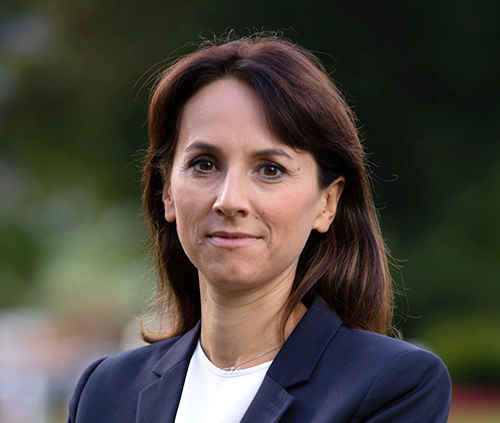
Laëtitia Peynon
Head of Academics, helping you prepare for your future.

Henri-François Vellut
Director of Academic Structure, guiding you when choosing academic programmes.

Patrick Zürcher
Associate Admissions Director, based on his experience as a Rosey teacher and ancien, ready to help you with information, guidance and reassurance.
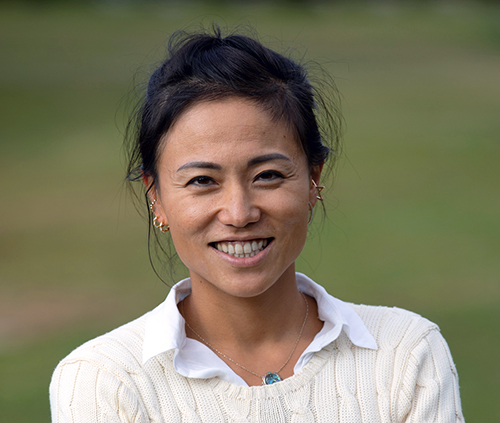
Mai Yagi
Associate Admissions Director and Rosey ancienne, sharing her love for the school all over the world.
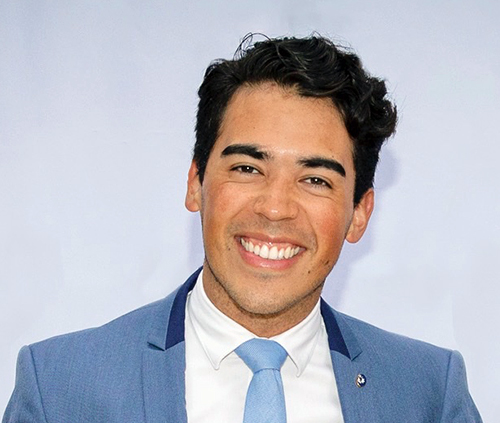
Felipe Laurent
Associate Admissions Director and Rosey ancien sharing his passion for the school and its Summer Camps.

Christopher Bouladon
Honorary Director of Admissions, advising you and guiding you throughout the admissions procedure.
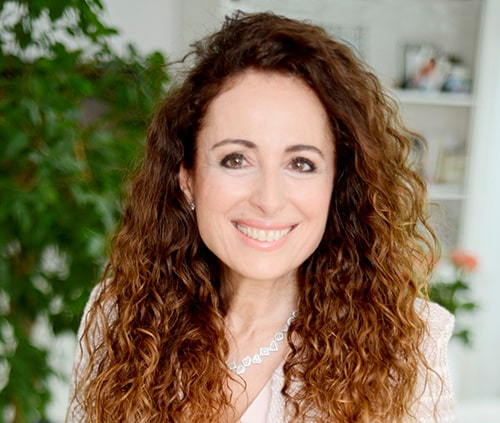
Marie-Thérèse Auberson
Admission Officer
